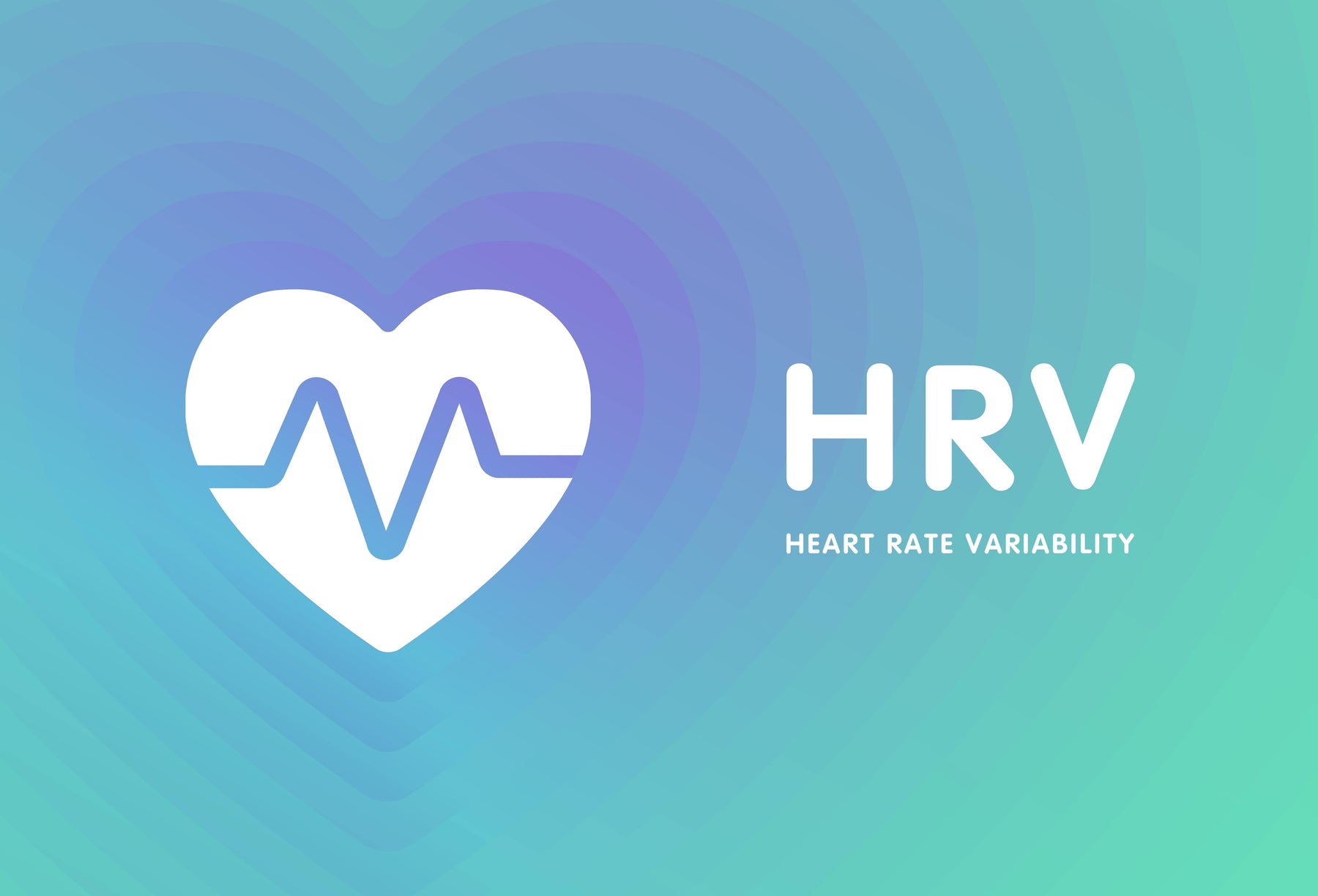
What is HRV and How Does it Impact Sleep?
There are tons of moving parts that influence whether we feel refreshed or wake up in a mess. One of the lesser-known factors in terms of sleep quality is something known as Heart Rate Variability (HRV).
Upon first glance, you might think that this is overly scientific and confusing. Fortunately, it’s not something that goes entirely over the head of a layman. It is a topic worth understanding if you are looking to improve sleep and wish to feel more rested each day. At the heart of it all, it is simply the variation in time between heartbeats. A higher HRV is actually a good thing, contrary to what you might initially think. It is a signal that your body is relaxed and ready to take on stress. You are in a more adaptable position, regardless of the situation you’re in.
Your heart rate variability can say a lot about how you are sleeping, of course. Your sleep can also determine how your HRV ends up. Everybody on the planet can look into HRV and how it benefits us - it’s not just for athletes or those deeply interested in science.
Here, we are going to break down what HRV is, how it works for you, and why it matters. Hopefully, by the end of this, you’ll want to track your own HRV and understand where your health currently stands. Let’s begin:
What Exactly Is Heart Rate Variability (HRV)?
Specifically, heart rate variability is the variation in time between heartbeats. You might think that your heart beats like a metronome and is consistent every single time. The truth is that it speeds up and slows down in response to many different things. Stress, movement, and even breathing all have different reactions. It is measured in milliseconds and is controlled by your autonomic nervous system. When this system is balanced, HRV is often higher. When you are going through stressful times or are feeling sick, HRV will drop. Your ‘fight’ or ‘flight’ and ‘rest and digest’ branches come into play during these actions.
HRV Is A Sign Of Resilience
HRV basically shows you a snapshot of how flexible your body becomes under any kind of stress. If you possess a higher HRV, it typically means that your body can handle changes a lot better. You are okay with dealing with physical, environmental, and even emotional problems. If you have a consistently high HRV, you will be in a better state of recovery and deal with less overall stress. You are more capable of adapting to the challenges around you. Conversely, low HRV typically means that your system is under strain and you do not recover as well. This may be due to bad sleep patterns, emotional stress, or consuming too much caffeine.
Sleep, HRV, And The Science Behind It
When you sleep, your body goes through different cycles. It’s not just a case of being unconscious for around eight hours straight. You will experience light sleep, deep sleep, and rapid eye movement (REM) sleep.
When you are in a deep sleep, your parasympathetic nervous system dominates, which leads to higher HRV. Your body will sit in recovery mode here.
If you get a poor night’s sleep or you wake up frequently, you will typically reduce your HRV. Your body will not get the chance to recharge properly, and your nervous system will stay on high alert for a much longer time.
The Value Of Quality Sleep
We all know that around eight hours is the sweet spot for sleeping. Some people can have seven, and others might need nine hours. The quality of your sleep matters more than the time spent in dreamland, however. It’s common for some people to clock nearly ten hours in bed but still feel groggy. Your HRV will indicate whether your sleep was actually restorative or not.
If your HRV is high overnight, it’s often a good sign that your body moved through all necessary sleep stages effectively. If it is low, it could mean that high stress levels and late-night food heavily affect your rest.
Stress And HRV
Stress is a big problem when it comes to your HRV and poor sleep. When you are going through stressful situations, your sympathetic nervous system kicks in. Your body is then flooded with cortisol and adrenaline. Your HRV is also kept low, making it even harder to fall asleep and stay that way. With chronic stress, your body will become trained to stay in fight or flight mode. This is not ideal for when you wish to wind down. It’s a good idea to learn how to manage stress. Breathing work, mindfulness, and a bit more exercise can all be powerful tools for improving sleep and HRV.
HRV Mixed With Alcohol And Caffeine
Most people's favourite legal stimulants and depressants play a huge part in HRV. Caffeine, alcohol, and late-night eating are not just relatively pleasurable things in the short term.
Caffeine can stay in your system for up to 10 hours and reduce your HRV.
Alcohol will make you sleepy, but it will also disrupt deep sleep and lead to lower overnight HRV.
A habit of late-night eating can be pleasurable, but it could stress the system and lower HRV.
It’s a good idea to cut back on these if your sleep is consistently poor. Doing so in the evening can make a significant difference.
How Exercise Plays A Part
Exercise can be either good or bad for HRV, depending on the volume. If you exercise in moderation and stay disciplined, you will obviously boost HRV by improving your cardiovascular health. If you overtrain, however, it will only lower it and mess with your sleep. The same can be said for those who work out too close to bedtime. It’s all about giving your body time to recover. If your HRV is consistently falling, it would be a good idea to take more rest days. If you don’t wish to do this, you could swap out a high-intensity session for something lighter.
Breathing And Meditation
If you want to increase HRV, controlled breathing is one of the fastest ways to do so. Techniques like breathing will calm your nervous system and prepare your body for sleep. Meditation works in a similar way in that your mind becomes calmer. You are signalling to your body that things are safe around you and you are able to relax. A couple of minutes per night can help you to see a change.
Devices And Tools For HRV Tracking
You don’t need a high-quality lab to track your HRV in 2025. There are many tools out there that can offer HRV tracking. An Oura Ring or Apple Watch offers sleep stage analysis and recovery scores, too. As long as you are consistent, things will change for the better. Everyone possesses a different HRV, so don’t compare yours to anyone else’s.
What A Sleep-Friendly Environment Looks Like
In order to pretty much guarantee higher HRV, you must set the scene around you.
Ensure that you have complete darkness in your room during the night. Keep a cool room temperature and stay away from screens around an hour before sleeping. You could also use earplugs or White Noise if your environment is a little noisy. These kinds of ideas will signal to your nervous system that it’s time to recover.
Consistency
We’ve touched on consistency briefly, but it’s important if you want the right results. The idea of doing the same things constantly is not thrilling, but it is incredibly effective. Your body loves patterns and rhythm, so consistent sleep times will help to regulate your circadian rhythm. This will ultimately lead to deep sleep and better HRV.
What Must You Do If Your HRV Is Low?
If you test your HRV and notice it dropping, you shouldn’t panic. The same can be said if you notice the quality of your sleep dropping.
You should check your stress levels and make sure your sleeping environment is the perfect recovery zone. Do what you can to cut back on caffeine and alcohol, and ensure that you are consistent with your wind-down rituals.
Heart rate variability is not some trendy health stat. While it has become a more popular aspect to keep informed of, it’s also a window into how well you are handling life. Your body does most of its recovery while you are asleep, so obviously HRV and sleep are closely connected.
If you pay close attention to your habits and manage stress properly, you will support your HRV significantly. In turn, you will enjoy more restorative sleep each night. You don’t have to worry about things being perfect as long as you are aware of what’s going on around you. Once you become more in tune with your body’s rhythms, your nights and days will feel a lot better.
